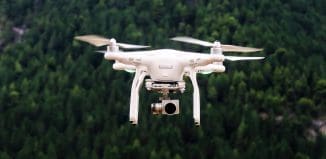DARPA Wants Techies To Think Like Terrorists
This post is also available in:  עברית (Hebrew)
עברית (Hebrew)
The explosion of technology in recent decades brought about with it a wealth of possibilities. Unfortunately, some of these possibilities are a boon for the bad guys, too. With some of the world’s most advanced technology just lying on shop shelves, criminals and terrorists are working hard trying to weaponise in. The folks at the Defence Advanced Research Projects Agency (DARPA) realise that to stop a terrorist, sometimes you need to think like one. To this end, DARPA have set up the Improv programme to encourage engineers, entrepreneurs, and general tech enthusiasts to imagine how this could be done.
Improv invites technologists to propose designs for weaponise commercial and open source software, off-the-shelf products, and generally available materials. The Agency has earmarked up to $40,000 for each proposal accepted into the feasibility study stage. After feasibility studies, those projects DARPA wants to see developed into basic prototypes will each get up to $70,000. Participants will have three months to develop prototypes and could receive $20,000 for their troubles.
If you find it inimical to encourage and spread this sort of ideas, Improv programme manager John Main says exploring these possibilities is the best form of security. “I think you have to assume that potential adversaries are very smart, and if something can be figured out, it will be figured out,” he says. “We are trying to get there first.”
DARPA’s aim with this programme is to coalesce a “read team” of techies and innovators to identify, develop, and protect against these types of risks, following the practice of bringing in an external team to assess an organisation’s security set up and procedures.
“DARPA’s in the surprise business and part of our goal is to prevent surprise. This particular space is one that is difficult to analyze and we’re trying a different approach to gathering information that will help us understand it,” he says. “It really is more about being proactive than reactive.”





























